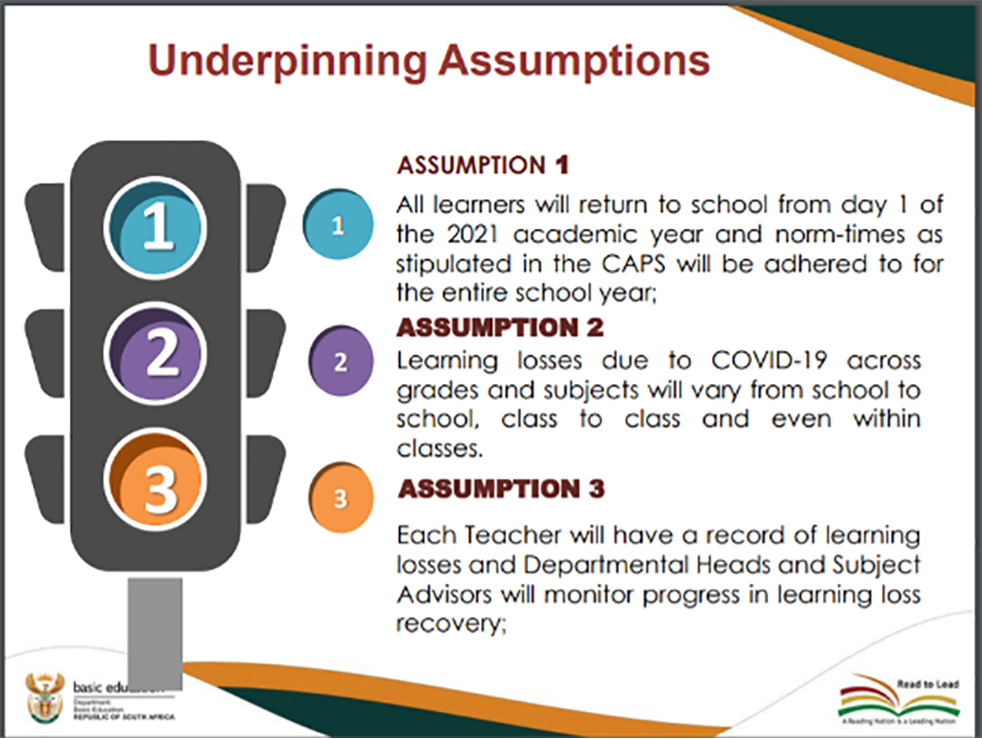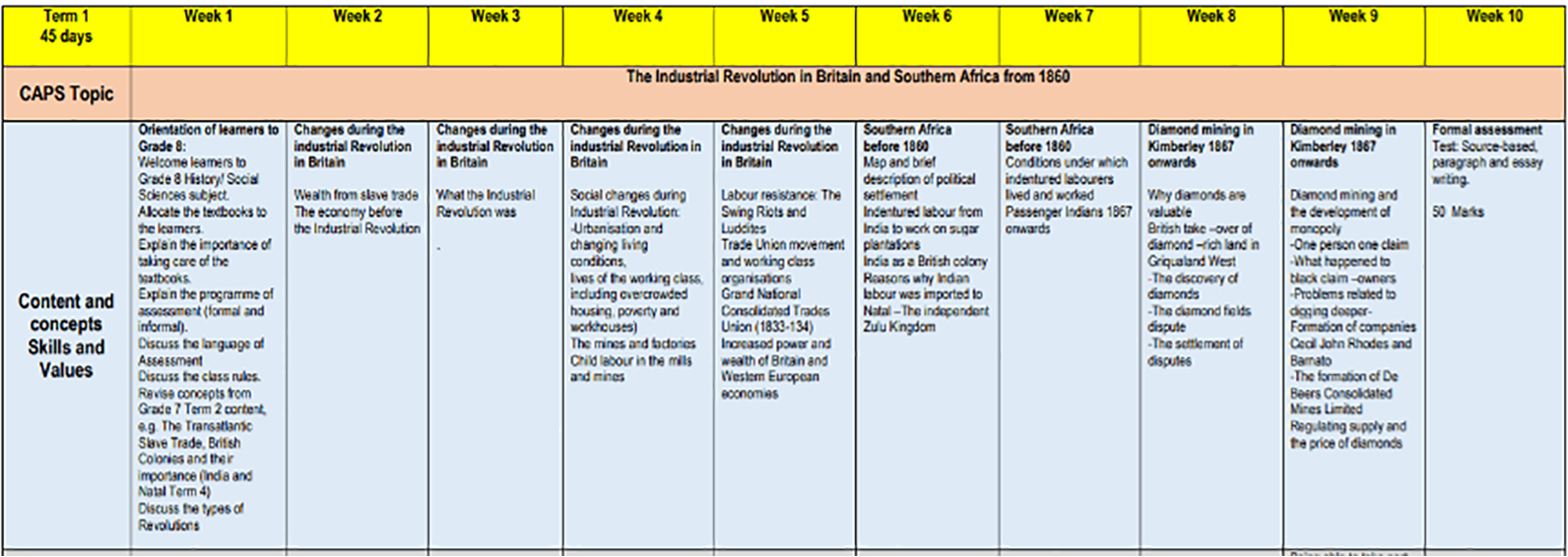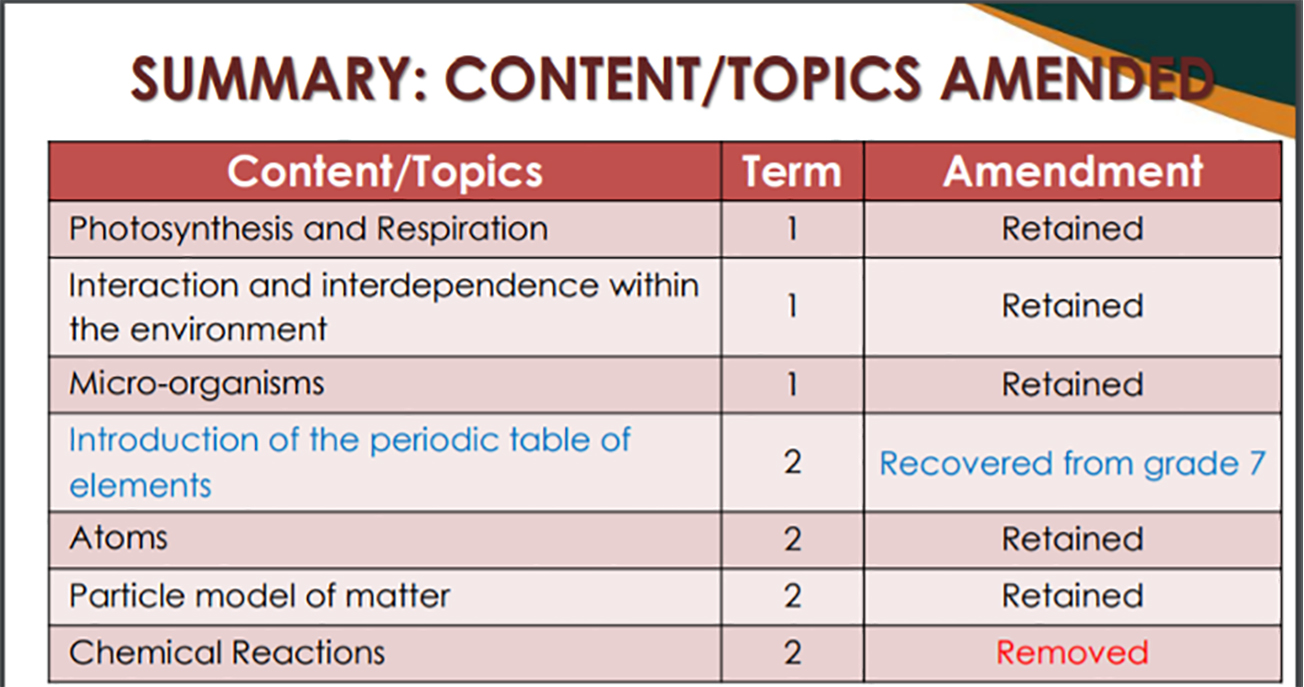For the Department of Basic Education (DBE) to issue a call for end-of-year exams to be scrapped shortly before exams begin, and for it to change the weighting of the school-based assessments and controlled assessments (tests and exams) so late in the year reflects so poorly on the department that I have tried to cope with my disgust by disengaging from the issue entirely. But the time has come to face it.
My main gripe isn’t what was communicated, but when this was done. Whether schools use exams or controlled tests doesn’t really matter; both can be used to assess learning. But the exams have been the focal endpoint that schools have been working towards, and the whole year’s teaching and learning could have looked very different if this plan was cemented and communicated much, much earlier.
Poor decision-making and inadequate communication are pretty on-brand for the DBE. I include here a screengrab from the DBE’s plan for its “recovery curriculum” for 2021. If we pay particular attention to Assumptions 1 and 6, we see that the entire curriculum recovery plan was based on the assumption that there would be no more pandemic disruptions after 2020. But should this not be the case (as anticipated in Assumption 6), it was assumed that schools would be able to handle the disruptions without losing any learning time.
Mind-boggling.


The curriculum Covid-19 recovery plan was released on the DBE website.)
It is indefensible that the DBE in 2020 simply failed to plan for an extended pandemic. And it is unforgivable that it should absolve itself from the planning required for the disruptions it predicted in Assumption 6. Beyond that, it is criminal that it did not revise these plans during the actual disruptions of 2021.
Below is the original official curriculum document for what should be taught in the first term of Grade 8 history. I have as yet never managed to cover all this content in the prescribed time, even without a disrupted school year.

This is a screenshot of the normal Grade 8 History curriculum.
The DBE’s response to help history teachers to deal with teaching in 2021 was to take exactly the same content and repackage it into colourful weekly sections. Sans the colour, functioning teachers would have planned their time this way in a non-pandemic year anyway.

This is a screenshot of “recovery plan” for Grade 8 History in 2021 taken from the DBE website.
History is allocated one-and-a-half hours a week in the Grade 8 timetable as per the official curriculum. And real learning time is reduced as students change classes, come in after break at a snail’s pace, or as desks are sanitised. So, in a good week, assume that there is one hour per week to cover all the work suggested in the 2021 curriculum.
Week 10 indicates that students should write one formal assessment for 50 marks (this would be the SBA) that includes an essay. But where exactly, between cramming all the information into one hour’s worth of class time, would there be any time to teach and perfect source-based skills, paragraph writing and the teaching and practising of essay writing? At the very least, where is the time to go over a homework activity or class worksheet?
Additionally, many students across South Africa lost at least 50% of their allocated learning time as they attended school on a rotational basis.
This 2021 Annual Teaching Plan (ATP) was an absurdly inadequate response to this predictable reality of the pandemic. Yet it is proudly displayed on the DBE’s website as a “recovery curriculum” that “is designed to accommodate the negative impact of Covid-19”.
In subjects like maths, the recovery curriculum showed a much better attempt to accommodate the lost learning time of 2020 by removing chunks of curriculum content like the volume of 3D shapes, probability and data collection and representation. Certain topics had their allocated time extended significantly. But, importantly, it still did not plan for a further year of disruptions.
Subjects like natural science didn’t remove any significant content beyond chemical reactions and reducing the content for parallel and series electric circuits, while trying to recover work from the previous year. Again, no preparation was made for the off chance that schooling might also be disrupted in 2021.

 Small changes to the Natural Science curriculum were made, but without provision for schooling disruptions beyond 2021.
Small changes to the Natural Science curriculum were made, but without provision for schooling disruptions beyond 2021.
Not only is the DBE not managing to combat the deterioration of our education system with any realistic and practical strategies, but it seems to insist on engaging with a business-as-usual approach in other areas. News broke a few weeks ago that the department is still hoping to change the history curriculum by 2024. I’ve heard of a Grade 10 history teacher who only sees her class for one hour a week. One hour! That is 25% of the allocated time for Grade 10! For the department to be attempting to overhaul the curriculum at this point is a fantastic example of shuffling the furniture on the deck of a sinking ship.
Enough is enough. South Africans need leaders in the DBE who appreciate the practicalities of teaching and learning on the ground, and who grasp the dire implications that a slow response and inaction have on the overall functioning of our education system. We need leaders who care about all our children and all our teachers, and who have the capacity to be proactive rather than being reactive or who go possum when faced with completely foreseeable events.
The Department’s failure to come up with a workable plan that will protect and support all schools across all subjects in their learning and teaching needs during and after a pandemic that has been raging for close to two years is a massive blot on Angie Motshekga’s legacy.
I write out of desperation. I write in the hope that our government will be deeply embarrassed by its response and that citizens will demand better from our state. Our children deserve more respect, more thought and more compassion than has been displayed thus far.
The department’s obsession with holding on to as many components of the prescribed curriculum as possible, even in the face of an unprecedented crisis; its resistance to thinking flexibly; its inability to plan effectively and communicate timeously; and its misunderstanding of the role that assessments play in teaching and learning are unfortunately just further examples of the failure of the state to meet the basic needs of our youth.
The pandemic is not over. It isn’t ending in December. Next year brings uncertainty in terms of learning time. The DBE cannot with any conscience continue on the assumption that there will be no disruptions or that all schools will be prepared to face them.
We do have some certainty, however, that there have been significant losses, both academic and psycho-social in the past two years.
Here are some ideas for dealing with the situation we face:
- Trash the expectation that e-learning will be rolled out across all schools by 1 January 2022. Create and distribute distance-learning resources (physical, not digital) that students can do daily, whether they are at school or not. Daily reading and writing activities and logic games might sound like low-impact effort, but learning is practice, and too many kids are not getting daily stimulation with the platoon system that many schools have adopted. This is actually an easy quick-fix that should have been up and running towards the middle of 2020. If it has been done in some instances, please let all schools know about it, because young people are sitting at home for days doing nothing productive;
- Slash the curriculum. Just slash it. All the way to matric. This isn’t a new suggestion. See here and here;
- Create a realistic and useful assessment schedule that provides for different scenarios. Clearly communicate to schools the conditions under which these would change, and when changes would be communicated;
- Slash the curriculum. I can’t say this enough. The skills and knowledge backlog is massive. We need time to stabilise and allow some deep learning to take place where core skills can be developed. Plus, our kids are dealing with massive personal and societal trauma. It is a sign of wisdom, not weakness, to give schools the space to work through this trauma; and
- The only mandatory curriculum changes should be those that bring flexibility and that simplify the entire system. There should be absolutely nothing new and disruptive. No new compulsory subjects either. We are in survival mode and will be for a long time.
Minister Motshekga, do you really want your legacy to be that you presided over the complete disintegration of our education system because your department refused to face the realities of a global epidemiological apocalypse? You could instead take decisive, courageous and innovative steps that lay the foundation for a highly functioning and successful system.
I have to believe that this can still exist, but you need to act now. DM
Maryke Bailey is a history teacher who is taking a hiatus from full-time teaching. She has been involved in various education-related projects, including some sessional lecturing and delivering professional development programmes.
















 Become an Insider
Become an Insider